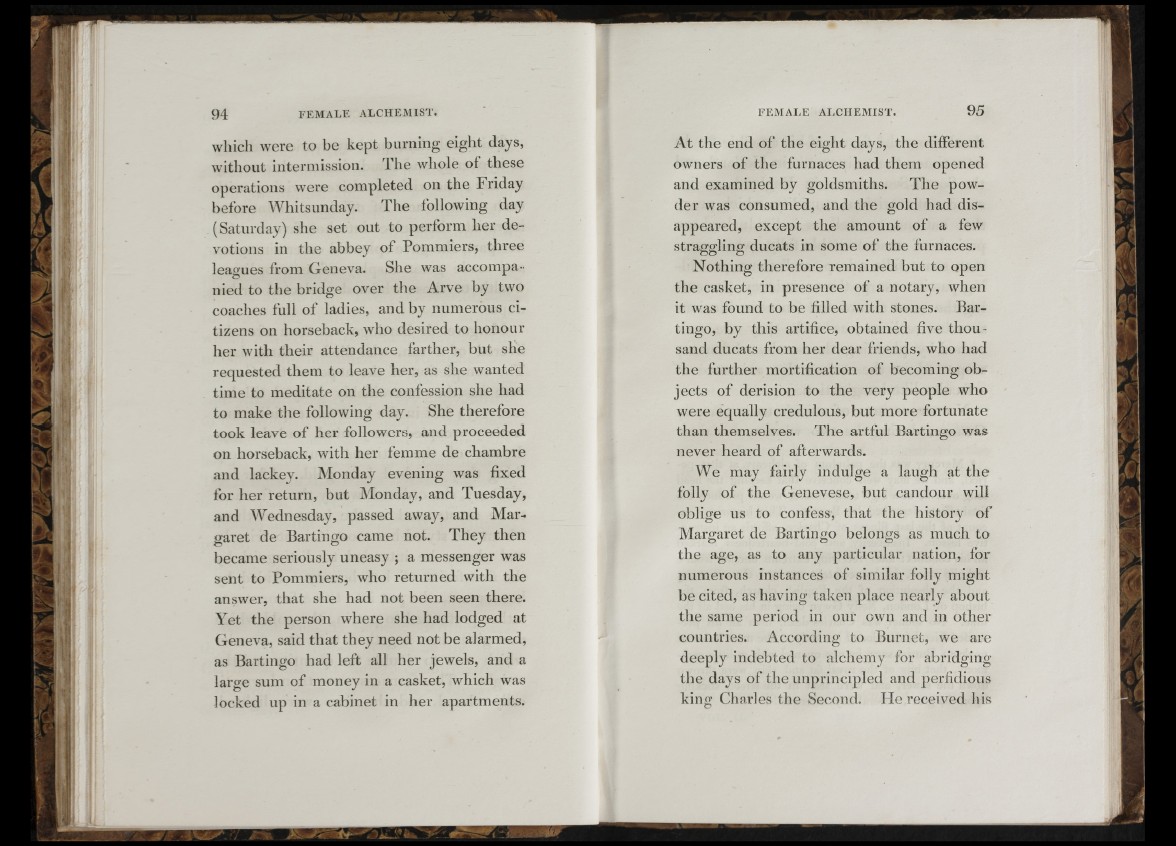
Jt> I
k \
which were to be kept burning eight days,
without intermission. The whole of these
operations were completed on the Friday
before Whitsunday. The following day
(Saturday) she set out to perform her devotions
in the abbey of Pommiers, three
leagues from Geneva. She was accompanied
to the bridge over the Arve by two
coaches full of ladies, and by numerous citizens
on horseback, who desired to honour
her with their attendance farther, but slie
requested them to leave her, as she wanted
time to meditate on the confession she had
to make the following day. She therefore
took leave of her followers, and proceeded
on horseback, with her femme de chambre
and lackey. Monday evening was fixed
for her return, but Monday, and Tuesday,
and Wednesday, passed away, and Margaret
de Bartingo came not. They then
became seriously uneasy ; a messenger was
sent to Pommiers, who returned with the
answer, that she had not been seen there.
Yet the person where she had lodged at
Geneva, said that they need not be alarmed,
as Bartingo had left all her jewels, and a
large sum of money in a casket, which was
locked lip in a cabinet in her apartments.
At the end of the eight days, the different
owners of the furnaces had them opened
and examined by goldsmiths. The powder
was consumed, and the gold had disappeared,
except the amount of a few
straggling ducats in some OO c5 of the furnaces.
Nothing therefore remained but to open
the casket, in presence of a notary, when
it was found to be filled with stones. Bartingo,
by this artifice, obtained five th o u sand
ducats from her dear friends, who had
the further mortification of becoming objects
of derision to the very people who
were equally credulous, but more fortunate
than themselves. The artful Bartingo was
never heard of afterwards.
We may fairly indulge a laugh at the
folly of the Genevese, but candour will
oblige us to confess, that tlie history o f
Margaret de Bartingo belongs as much to
the age, as to any particular nation, for
numerous instances of similar folly might
be cited, as having taken place nearly about
the same period in our own and in other
countries. According to Buriiet, we are
deeply indebted to alchemy for abridging
the days of the unprincipled and perfidious
king Charles the Second. He received his